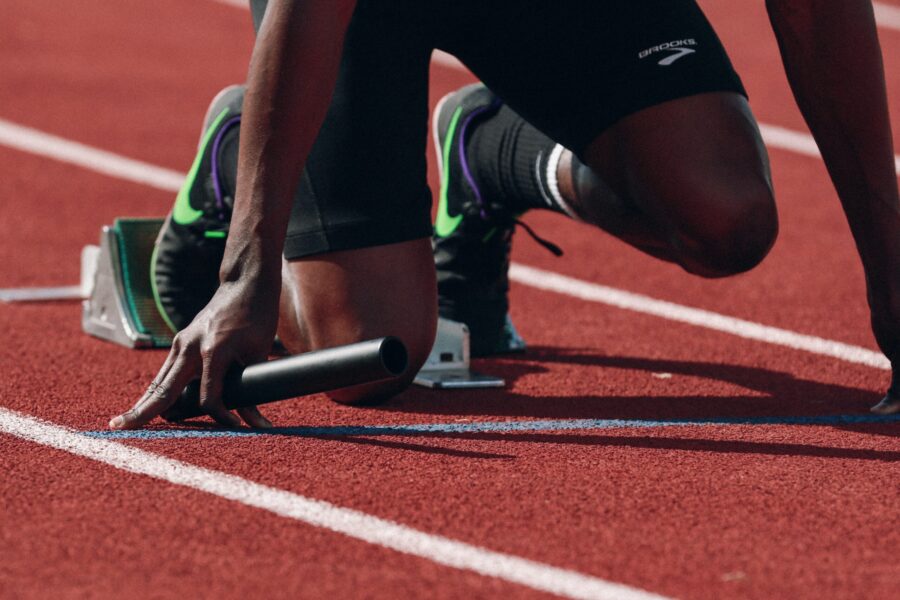The State of Collegiate Student Athlete Mental Health
How are collegiate athletes faring with their mental health? According to data from the NCAA Student-Athlete Health and Wellness Study released today, “student-athletes are reporting fewer mental health concerns than they did during the height of the pandemic,” although there’s a great distance to go, especially for female athletes.
Collegiate men are doing better. Women? Not so much.
By nearly every measure, female athletes report mental health concerns at considerably higher rates than their male counterparts, according to the NCAA. Women’s mental health distress is nearly double that of men.
Based on data collected from 23,000 student-athletes between September 2022 and June 2023, mental health concerns are down across nearly every category when compared to 2020 and 2021. The most significant decreases came among Division I men’s sports student-athletes, as fewer reported feeling constantly overwhelmed (down from 25% to 17%) or being mentally exhausted (down from 22% to 16%).
The picture for female athletes was less rosy, for although reported mental health concerns decreased since the full-blown pandemic, the numbers remain very high. Nearly one in two women participating in collegiate sports experienced feelings of overwhelm and one in three felt mentally exhausted. 44% of women said they felt overwhelmed (down from 47%), and 35% reported feeling mentally exhausted (down from 38%).
“As schools continue to improve their mental health care services while fostering an environment of well-being, student-athletes will continue to reap the benefits of wellness and mental health care seeking,” said NCAA chief medical officer Brian Hainline. “That being said, we need to understand better the gap in perceived mental health concerns between men and women student-athletes.”
What factors are causing the most stress?
The biggest stressor for student-athletes? Academic worries. Planning for the future, financial worries, playing time, and family worries were also listed as issues negatively affecting mental health.
What about breaking the stigma around mental health?
How comfortable do student-athletes feel in talking to their coaches about mental health? 54% of male athletes but only 40% of female athletes said they would be comfortable broaching the subject. These numbers were actually lower than those reported before the pandemic, as women’s comfortability dropped 9 points and men’s decreased by 8 points.
LGBTQ+ athletes are experiencing higher levels of mental health distress
In line with findings from the 2020 and 2021 studies, student-athletes of color, those identifying on the queer spectrum and those identifying as transgender or nonbinary reported higher levels of mental health struggles. These population subgroups frequently report higher rates of mental distress.
Bystander intervention training is paying off
One bright spot in the survey? In the past decade, there has been a concerted effort to increase safety and decrease unwanted sexual behavior in sports, and it appears to be changing attitudes and behavior.
42% of male athletes and 47% of women’s athletes said they’d received bystander intervention training. NCAA reports that “the number of men’s sports participants who responded that they are likely or extremely likely to intervene in a situation that could lead to unwanted sexual behavior increased by 22 percentage points since 2012, from 63% to 85%.” Among men who had received bystander intervention training, the number increased: 89% of male athletes said they would likely intervene in such a situation.
Why conduct mental health surveys?
The NCAA conducts these surveys to try to pinpoint the issues facing student-athletes and identify particular concerns among various subgroups. “Getting an accurate understanding of what student-athletes are experiencing — directly from them — is vitally important to help member schools better serve the students on their campuses,” said Tom Paskus, NCAA managing director of research.
When NCAA and school administrators take that information into account, creating programs to specifically address those concerns, there appears to be a positive impact.
Read the NCAA article here.
Read the report in its entirety: Current Findings on Student-Athlete Mental Health.
Radford, Chris. “Student-athletes report fewer mental health concerns.” NCAA Media Center, 13 Dec 2023, https://www.ncaa.org/news/2023/12/13/media-center-student-athletes-report-fewer-mental-health-concerns.aspx
Photo by Braden Collum on Unsplash



